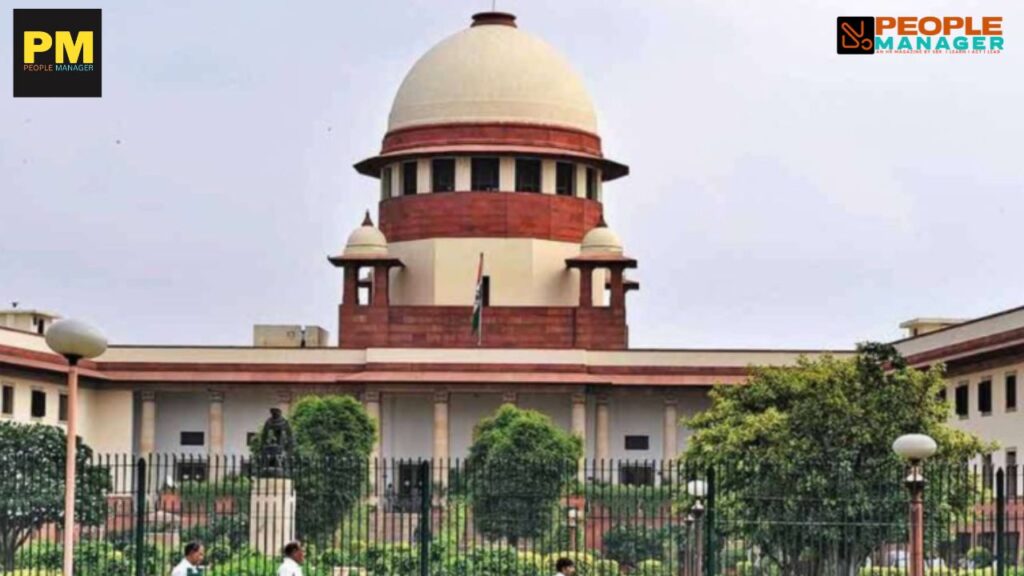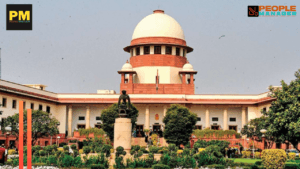‘Basic Wage’ Under EPF Act, Cannot Be Equated With ‘Minimum Wage’ Under Minimum Wages Act: Supreme Court
The Division bench of Justice Hima Kohli and Rajesh Bindal in the case observed while dismissing the appeal that once the EPF Act contains a specific provision defining the words 'Basic wage' (under Section 2b)

‘Basic Wage’ Under EPF Act, Cannot Be Equated With ‘Minimum Wage’ Under Minimum Wages Act Supreme Court held in the case of Assistant provident fund commissioner versus G4S security services
The Supreme Court dismissed an appeal by the Assistant Provident Fund Commissioner against an order of a division bench of the Punjab and Haryana High Court holding that when the term ‘basic wage’ is defined in Section 2(b) of the Employee Provident Fund Act 1952, there is no need to refer to the definition of’minimum rate of wages’ in Section 4 of the Minimum Wages Act 1948.
In the case, the Division Bench of the Punjab And Haryana High Court observed and stated that when the term ‘basic wage’ has been described as stated under Section 2(b) of the Employee Provident Fund Act 1952, there is no need to make a reference to the definition of’minimum rate of wages’ as stated under Section 4 of the Minimum Wages Act, 1948 to give it a more expansive meaning.
The appellant’s case in this case was that, in order to calculate the amount to be paid into the provident fund, the employer, i.e., the respondent in the appeal, had incorrectly split the wage structure and treated the reduced wage as the basic wage in order to avoid paying the correct amount into the provident fund. This, according to the appellant, was to the employees’ detriment.
Furthermore, the Appellate Tribunal, single bench, and division bench of the High Court in the case observed and rejected the Appellant’s arguments.
The Division bench of Justice Hima Kohli and Rajesh Bindal in the case observed while dismissing the appeal that once the EPF Act contains a specific provision defining the words ‘basic wage’ (under Section 2b), there was no reason for the appellant to expect the Court to travel to the Minimum Wages Act, 1948, thus giving it a different connotation or an expansive one, as sought to be urged, and this was clearly not the legislature’s intention.
The counsel, Additional Solicitor General Vikramjee, argued before the Apex Court that the’minimum rate of wages’ under Section 4 of the Minimum Wages Act, 1948, must be considered to when assessing the basic salary under the EPF Act.
The Supreme Court noted and rejected the contention in the case, wherein it agreed with the High Court’s opinion that ‘basic wage’ need not be equated with’minimum pay’:
The court in the case noted that this element was reviewed in paragraph 6 of the impugned judgment and declined, finding that there was no compulsion to hold the concept of ‘basic wage’ to be equated with the meaning of’minimum wage’ as specified in the Minimum Wages Act, 1948.
Given the foregoing remarks, the Supreme Court dismissed the current appeal as without merit. There will be no cost orders issued.
- Pernod Ricard India introduces Cheers VRorld, an industry-first VR-powered onboarding experience in the Alco-Bev sector - February 11, 2026
- Jio-bp Appoints Sareeta Bhatikar as Chief Human Resources Officer to Steer Next Phase of Growth - February 11, 2026
- India Keeps Hiring as Global Markets Slow: Michael Page India Salary Report-26 - February 6, 2026









